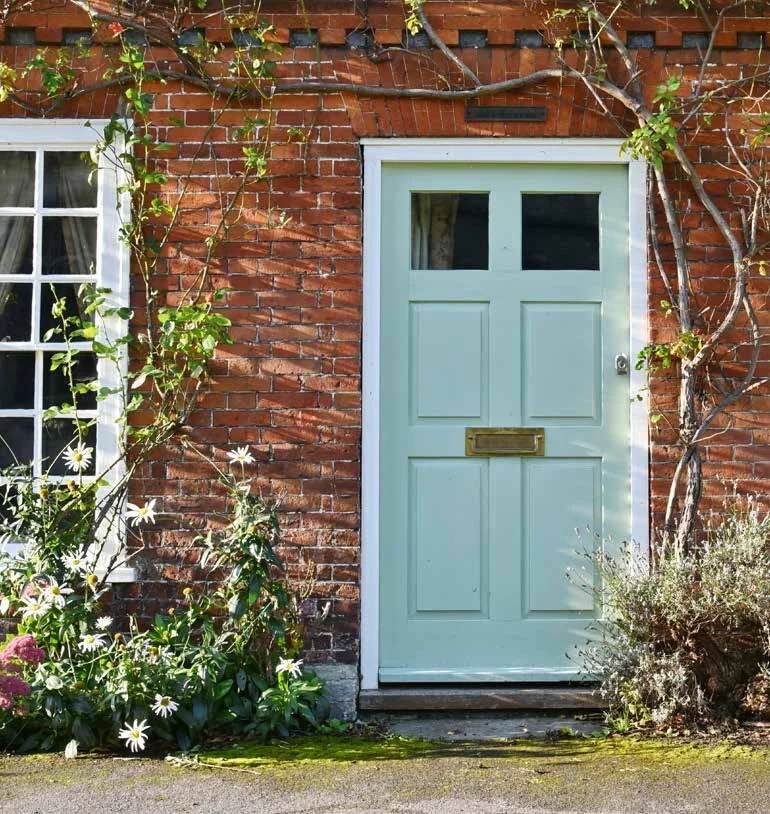What to do when faced with taxes, a mortgage and home insurance
Until you inherit a property, it’s likely that you’ve never thought about the process for selling one. Now, at an already difficult time, you’re faced with paperwork and legal jargon which can seem intimidating.
When you first inherit a property, you may also be faced with potential costs that fall into three categories: taxes, mortgages and home insurance. Don’t forget that you’re liable for council tax on an inherited property, even when it’s unoccupied.
ESTABLISHING LEGAL OWNERSHIP
If the property was left to you in a Will, then ownership will be clear. But if the deceased person did not document their wishes for their property to be left to you, you may need to go through some additional steps to confirm their intention.
To avoid any problems establishing ownership, it’s important to enlist the help of a legal professional with experience in these matters.
Shared ownership can make things a little trickier when making those major decisions, but the next steps are to apply for a Grant of Probate.
APPLYING FOR PROBATE
If you are named as the executor of the person’s Will, you are responsible for handling their estate, property, money, et cetera. When someone dies in England and Wales, you may need to go through a process called ‘Probate'.
The Scottish equivalent is a Grant of Confirmation. This means formally applying, or asking a legal representative to apply on your behalf to ensure that the right person takes control of the estate.
If there is no Will, the estate is handled by an Administrator, who is usually the closest living relative, such as a legal partner, a child, a grandchild, and so on. If you are the closest living relative, you will need to follow the same steps as applying for a Grant of Probate.
THE PROBATE PROCESS
The Probate process can take weeks or months, depending on the complexity of the estate and whether a Will was left. Part of the Probate process is calculating the total estate value. This includes all properties, money, investments, et cetera, that the deceased person owned when they died. It can sometimes include gifts they made in the final years of their life, too.
A PROPERTY WITH A MORTGAGE
In the situation whereby you inherit a property with an existing mortgage, you automatically become responsible for meeting the mortgage repayments, even if you don’t live there. In some cases, the deceased may have a life insurance policy, which can be used to cover the cost of the outstanding mortgage. If there’s no policy, or their life insurance policy isn’t enough to pay the mortgage off in full, you generally have two options.
Once the property has been officially released to you after Probate is settled, either sell the property and use funds from the sale to pay off any remaining mortgage, or take out a new mortgage on the inherited property in your name.
Once Probate is complete, the insurance you need for the property will depend on what you decide to do with it. If you initially move in before selling it you’ll need standard home insurance, or second home insurance if you are keeping another property too. Alternatively, if you’re planning to let out the property before you sell, then you’ll need landlord insurance.
PAYING INHERITANCE TAX
If you are the deceased person’s legal partner, there will be no Inheritance Tax to pay. There is also normally no tax to be paid if the value of the estate is below the current Nil-Rate Band (NRB) of £325,000, or if a property is gifted to children or grandchildren the threshold can increase to £500,000.
The reason being that in 2017 the government introduced the Residence Nil-Rate Band (RNRB) – a scheme designed to add up to another £175,000 to the Nil-Rate Band, providing the deceased left behind a property.
In terms of the whole estate, there’s another threshold to be aware of too. For every £2 the total estate is over £2 million, the RNRB allowance will drop by £1.
There are various other factors involved in determining whether there is Inheritance Tax to pay. If you’re not sure, obtaining expert advice may be necessary. Remember you could be facing a tax bill of up to 40% of the estate.
PAYING CAPITAL GAINS TAX
You will only have to pay Capital Gains Tax on an inherited property if the value of the property has risen since it was first valued for Probate purposes. This can be offset against the fees incurred to sell it and any major improvements you’ve made. Everyone receives a tax-free Capital Gains Tax allowance for the 2021/22 tax year of £12,300.
SELLING THE PROPERTY
Once the Probate process is complete and any Inheritance Tax bill is paid, you can register your ownership of the property with the Land Registry. Inheritance Tax must be paid by the end of the sixth month after the person’s death. If the tax is not paid within this timeframe, HM Revenue & Customs will start charging interest.
You can then sell the property through whichever method you prefer. Some people choose a private treaty sale (the most common type of property sale), but if you’re motivated to sell quickly, you might choose to sell at auction.
IT’S GOOD TO TALK
Inheriting a property can be complicated, so it’s important to receive professional advice. To discuss your options, please speak to The Surrey Mortgage Broker – telephone 01252 759233 – email info@thesurreymortgagebroker.co.uk.














